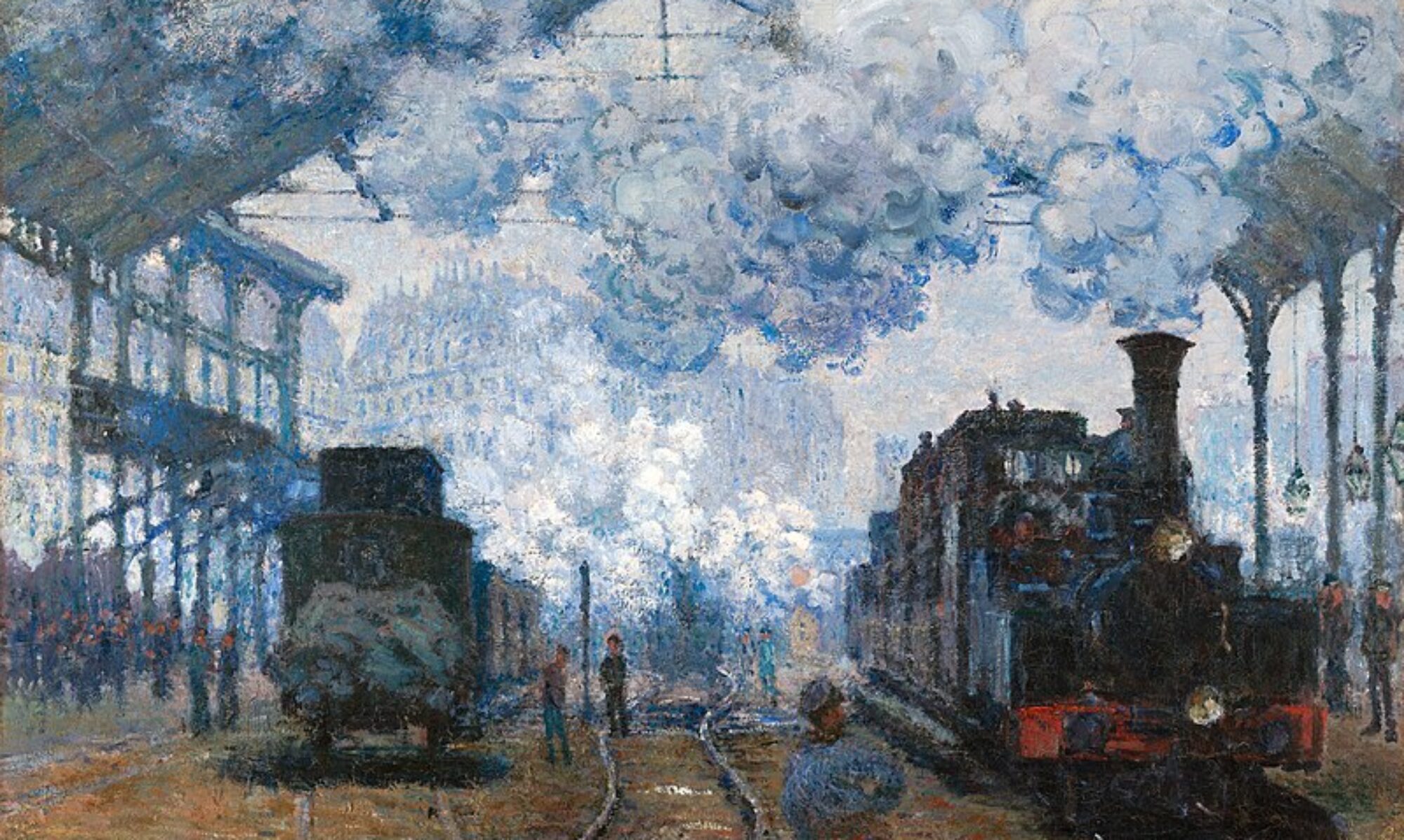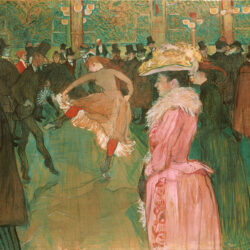In chapter 16 we read that the relationship between Okonkwo and Nwoye is very strained to the point where Nwoye says that he is not his father. When the Christians come Nwoye is somehow drawn to them and wanted to learn more. In chapter 17 we read that Nwoye joins the Christians and wants to come back later and convert his family. Why do you think Nwoye was drawn to the Christian faith so much so that he left his family?
Breaking Apart
Chapters 16 and 17 are very important chapters in this novel as we see the effects of the imperialists on Africa. Earlier parts of the novel focused on family relations and kinship, but not long after white men enter the villages we see signs of inner weakness among these units. Okonkwo and his oldest son’s relationship becomes even more strained as his son accepts the Christian faith. We also see the first woman convert (a pregnant woman) turning from her family after being forced to abandon past children because of traditions. Why do you believe Christianity appealed to certain people within the village?
“Ominous” Foreshadowing
In chapter 15 of “When Things Fall Apart,” Okonkwo’s friend Obierika had delivered news to him and his uncle about the massacre of the African Abame tribe that had occurred at a large market place. This massacre had destroyed the entire tribe and only a few members were left. This massacre was different from the normal disputes or wars between tribes because this tragedy was committed by three white European colonizers who had received help from members of another tribe. (Achebe, 131)The white men had sought revenge after members of the Adame tribe had noticed a white man riding on his horse, and they had killed him after receiving a warning from their oracle about the destruction that white men would bring. Thus, the Adame were defending themselves from what they perceived to be the beginning of invasion. After all, many individuals from tribes have heard stories about white men kidnapping Africans by force and enslaving them. (Achebe, 132)Thus, they were concerned about the safety of their tribe. However, the Adame never asked the white man for information which Oknokwo’s uncle Uchendu believes led to the slaughter. (Achebe, 130) For instance, Uchendu stated, “Never kill a man who says nothing. Those men of Abame are fools. What did they know about the man?” Unchedu believed that it was dangerous to kill a man without finding out his intentions first or the reactions of those who accompany a man. (Achebe, 131) Uchendu then narrated a story about a woman who told her daughter to return a baby chick she had stolen from its mother because the mother had walked away in silence. The woman believed that the chick could not be eaten until the mother had at least shouted or cursed her daughter for stealing the chick because she believed that silence left uncertainty. The woman feared that the duck could seek revenge for her baby chick, so they needed to see her express normal emotions such as anger. For instance, she states, ” “Their is something ominous behind this silence.” (Achebe, 132) How does Uchendu’s story about the baby chick foreshadow the uncertainty and dangers surrounding European imperialism?
superstition 10/27
in chapter two the narrator adds in the addition of how much superstition was apart of their culture “darkness held a vague terror these people, even the bravest among them. Children were warned not to whistle at night for fear of evil spirits. Dangerous animals became even more sinister and uncanny in the dar. A snake was never called by its name at night, because it would hear.” these superstition can seen evolving over time and i wonder if they can be connected to thing like religon and other spirtatul elements? another thing is that these people are not the only ones that fear the dark, however this fear and the creation of superstition has keep human alive a lot longer because of it. what I am asking is if supertition is not all nonsense but like the fear of speaking the word snake in the night was humans complex way of expressing instinct?
Neighbors
In Chapter 15 of “Things Fall Apart”, one quote stuck out to me in particular. “I knew your father, Iweka. He was a great man. He had many friends here and came to see them quite often. Those were good days when a man had friends in distant clans. Your generation does not know that. You stay at home, afraid of your next-door neighbor. Even a man’s motherland is strange to him nowadays” (Achebe 137). I find this very interesting. Nowadays, it does seem that people do not communicate with their neighbors as often =, or explore the areas around them. Do you find this to be true? And if so, why do you think this?
Masculinity and Violence-10/27
In Chapter 2 of Things Fall Apart, it says, ” His [Okonkwo] wives, especially the youngest, lived in perpetual fear of his fiery temper, and so did his little children. Perhaps down in his heart Okonkwo was not a cruel man. But his whole life was dominated by fear, the fear of failure and of weakness… It was not external but lay deep within himself.” (pg. 12-13)
This quote describes Okonkwo’s behavior with his family, and why he acts the way he does. He lashes out at people because of his insecurities and fears of inadequacy. While this does not excuse abusive behavior in any way, the explanation is important to understand. Where does his issues stem from? His father, the society he lives in, or maybe both? How is this exacerbated by his exile and move to his mother’s village in Chapters 14 and 15?
Judgement of others
In chapter one of Things Fall apart, we learn about Okonkwo’s father, Unoka. Unoka is described in this chapter as a man that people didn’t have much respect for. He was said to be lazy, improvident, and was in extreme amounts of debt due to him borrowing money from neighbors and never returning the money he owed. He never took any titles. (Mandela 4)
Because of how his father acted, Okonkwo was ashamed of his father. “Fortunately, among these people a man was judged according to his worth and not according to the worth of his father (Mandela 8).” This shows us that back in the 19th century, some dealt with this issue of people judging them based on things their parents have or haven’t done. Do you think we still see this issue occurring in today’s society? How can this be harmful to a person’s reputation in the time period of the book or even in today’s society?
What you pass down (and what you don’t).
The exploration of the relationships between parents and children seems to play a central role in Chinua Achebe’s Things Fall Apart. Okonkwo lost his mother at a young age and he grew up regarding his father as a failure, both as a man and therefore in life. He looked to his father, Unoka, as an example of how not to behave and this clearly influences how he interacts with his children and partners; “Okonkwo ruled his household with a heavy hand. His wives… lived in perpetual fear of his fiery temper, and so did his little children” (4). His oldest son, Nwoye, however is already displaying attributes that Okonkwo associates with his father and therefore abhors especially an “incipient laziness” (4). I would argue from this small portion of the book that the author is setting up a cycle where a parent (Unoka) behaves a way that drives their child (Okonkwo) to “hate everything that his father… had loved” (4) and therefore act the opposite way when they are grown, however that extreme behavior alienates their child (Nwoye) who might grow up to live to try and be the opposite of his father. Do you see the author making this point? How do you factor in the role of the mother in this, does it change the dynamic? As Uchendu comments “when a father beats his child, it seeks sympathy in it’s mother’s hut” (44) does the presence of a mother or another parent have an effect on this pattern? I think it is important to consider since one difference between the generations is that Okonkwo lost his mother as a boy but Nwoye still has his.
Daddy Issues
Although the sections are short, one of the recurring themes I saw in Chinua Achebe’s Things Fall Apart is the performance of masculinity. In fact, a large part of the protagonist is centered around his dedication to behaving as masculine as possible. Okonkwo is very physically strong and behaves aggressively; “whenever he was angry and could not get his words out quickly enough, he would use his fists” (1). It is clear through his actions and attitudes that he equates masculinity with worthiness or virtue and this is coupled with a virulent distaste for femininity, in both women and men, especially his father. In fact, “[Okonkwo] had no patience with his father” (1) and attempts to be the antithesis of him, where his father was thin, he is huge, where his father was a coward who can’t stand the sight of blood, he is a man of war who welcomes it. In essence, his “whole life was dominated by fear, the fear of failure and of weakness… it was the fear of himself, lest he should be found to resemble his father” (4). In the beginning, these actions and attitudes have brought him wealth, fame, family, and respect but we see later in the reading that he faces some consequences and is exiled for seven years. What is your impression of the message that Achebe is trying to convey? Are Okonkwo’s displays of toxic masculinity something to condemn or is there another problem with his character? How do you view his feeling about his father and how he allows them to drive his life?
Symbols for White Colonizers
In chapter 15 of Things fall apart, Okonkwo was talking to Obrierika about a white man coming during the planting season. The people asked the Oracle and it replied saying ” the strange man would break their clan and spread destruction among them”(97). They later go on to say that the white men were on their way and described them as locusts. Why do you think they chose a locust to symbolize the white colonizers?

